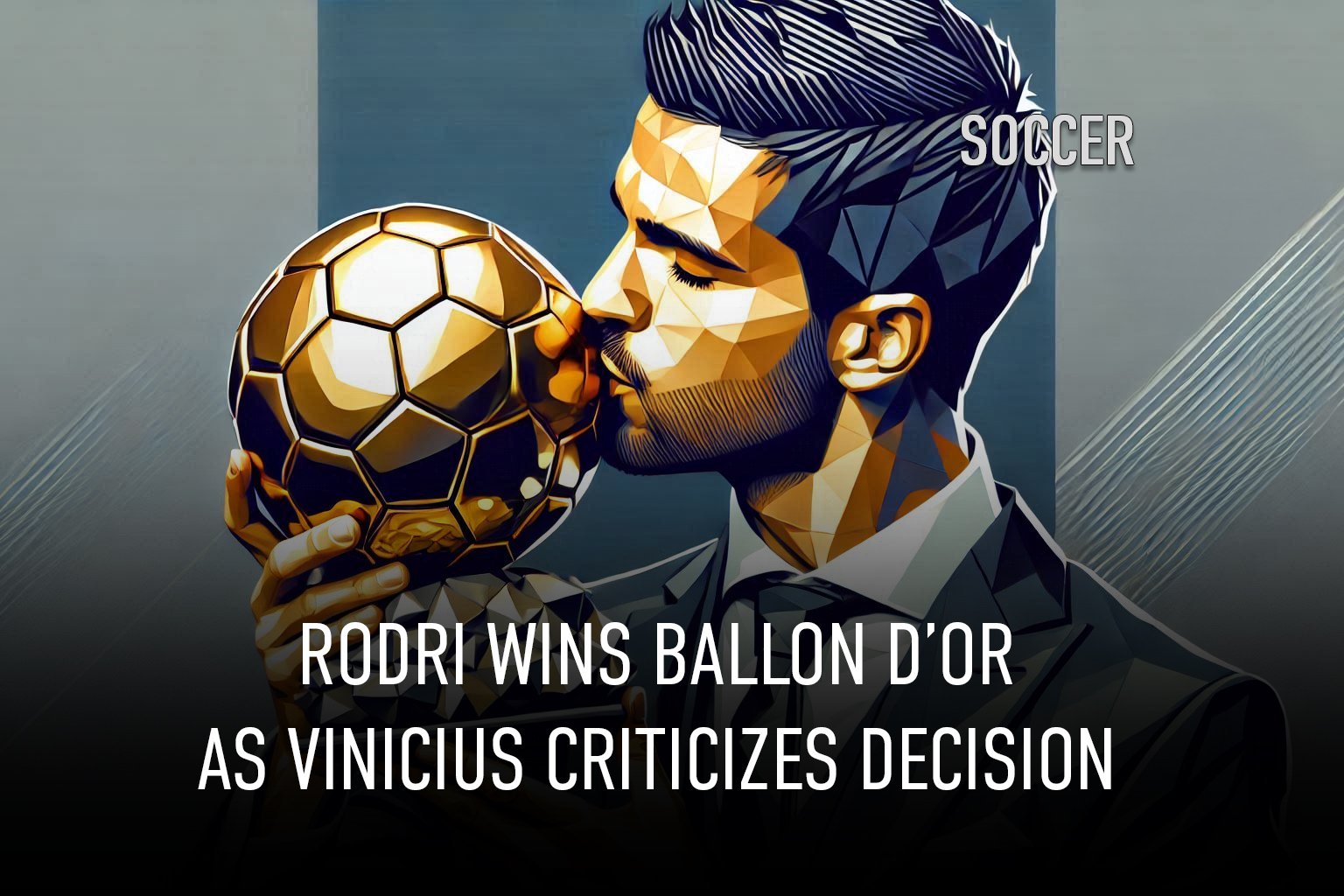RODRI WINS BALLON D’OR AS VINICIUS CRITICIZES DECISION

Manchester City midfielder Rodri claimed the Ballon d’Or on October 28, awarded in Paris for his pivotal role in both club and country. Rodri outperformed Real Madrid’s Vinicius Jr. and Jude Bellingham for this year’s top honor, marking a historic moment as the first defensive midfielder since 1990 and the first Spaniard since Luis Suarez in 1960 to win the prize. His instrumental play helped Manchester City secure another Premier League title and led Spain to a record fourth European Championship victory.
Rodri’s accomplishment reflects years of dedication and discipline, yet he took the opportunity to emphasize the collective achievements of Spanish football. “This isn’t just a victory for me, it’s a win for Spanish football,” Rodri said, recognizing past players like Xavi, Iniesta, and Sergio Busquets who contributed immensely to Spain’s football success without receiving this honor.
Praised for his unique skill set and grounded character, Rodri mentioned his values and work ethic, noting that his path to success stands outside of typical football stereotypes. Manchester City manager Pep Guardiola has previously called Rodri the “best midfielder in the world,” a reputation he further solidified with this award.
A New Era without Messi or Ronaldo
Rodri’s win symbolizes a turning point for the Ballon d’Or, which had been dominated by Lionel Messi and Cristiano Ronaldo for over a decade. This year marked the first time since 2003 that neither player was on the nominee list, reflecting a shift as younger talent takes the global stage. Ronaldo, now playing in Saudi Arabia, missed the cut for the second consecutive year, while Messi, an eight-time Ballon d’Or winner, was also absent from the final lineup.
Additionally, Rodri’s young Spanish teammate Lamine Yamal took home the Kopa Trophy for best Under-21 player. In the women’s category, Spain’s Aitana Bonmati won the Ballon d’Or for the second consecutive year, while Jennifer Hermoso received the Socrates Award for her advocacy for gender equality in football.
Real Madrid’s Boycott and Vinicius’s Statement
While many celebrated Rodri’s win, Real Madrid abstained from attending the ceremony, reportedly due to Vinicius Jr.’s ranking. After the announcement, Vinicius posted on social media, implying that his commitment to fighting racism could have impacted his chances for the award. His management later clarified that Vinicius believes his activism has made him a contentious figure within the football establishment.
The young Brazilian has experienced racial abuse during matches in La Liga, with recent convictions marking Spain’s first steps toward tackling racism in football. Vinicius’s experience serves as a reminder that, while strides have been made, racial discrimination remains a prevalent issue in the sport. His voice against racism is an important call for the need to eliminate prejudice from both football and society.
While Vinicius’s dedication to addressing racism deserves admiration, it’s essential to keep the context of the Ballon d’Or clear. Awards like these are intended to honor on-field performance and contributions to the game, separate from activism. Suggesting his ranking was impacted by his stance against racism risks conflating two critical but distinct aspects of football. Shifting the focus to these claims may unintentionally distract from the real work of eradicating racism from the sport, a fight that extends beyond any one player or award.
A Balanced Path Forward
This year’s Ballon d’Or acknowledged not only exceptional talent but also the need for meaningful progress in sports. Rodri’s achievement is a well-deserved celebration of performance, discipline, and the impact of Spanish football on the global stage. Vinicius’s fight against racism underscores the vital need to maintain an inclusive environment, free from discrimination.
As football continues to evolve, it’s crucial to celebrate the game’s top players while keeping a focused approach to social justice. Vinicius’s message should remain a focal point in the larger context of ending racism in sports, yet it’s equally important that such issues do not overshadow recognition of outstanding athletic performances.
Rodri’s victory and Vinicius’s courage remind us that sports can foster both excellence and progress, provided each is acknowledged in its own right.
